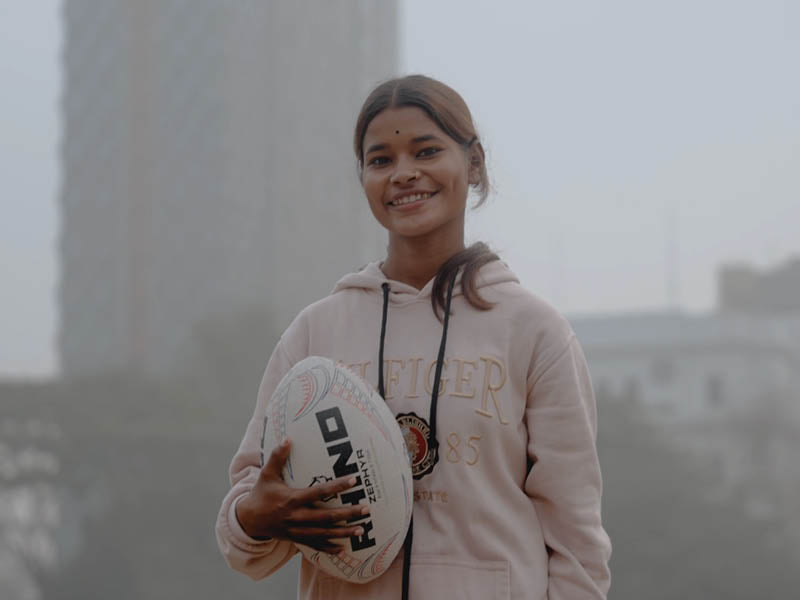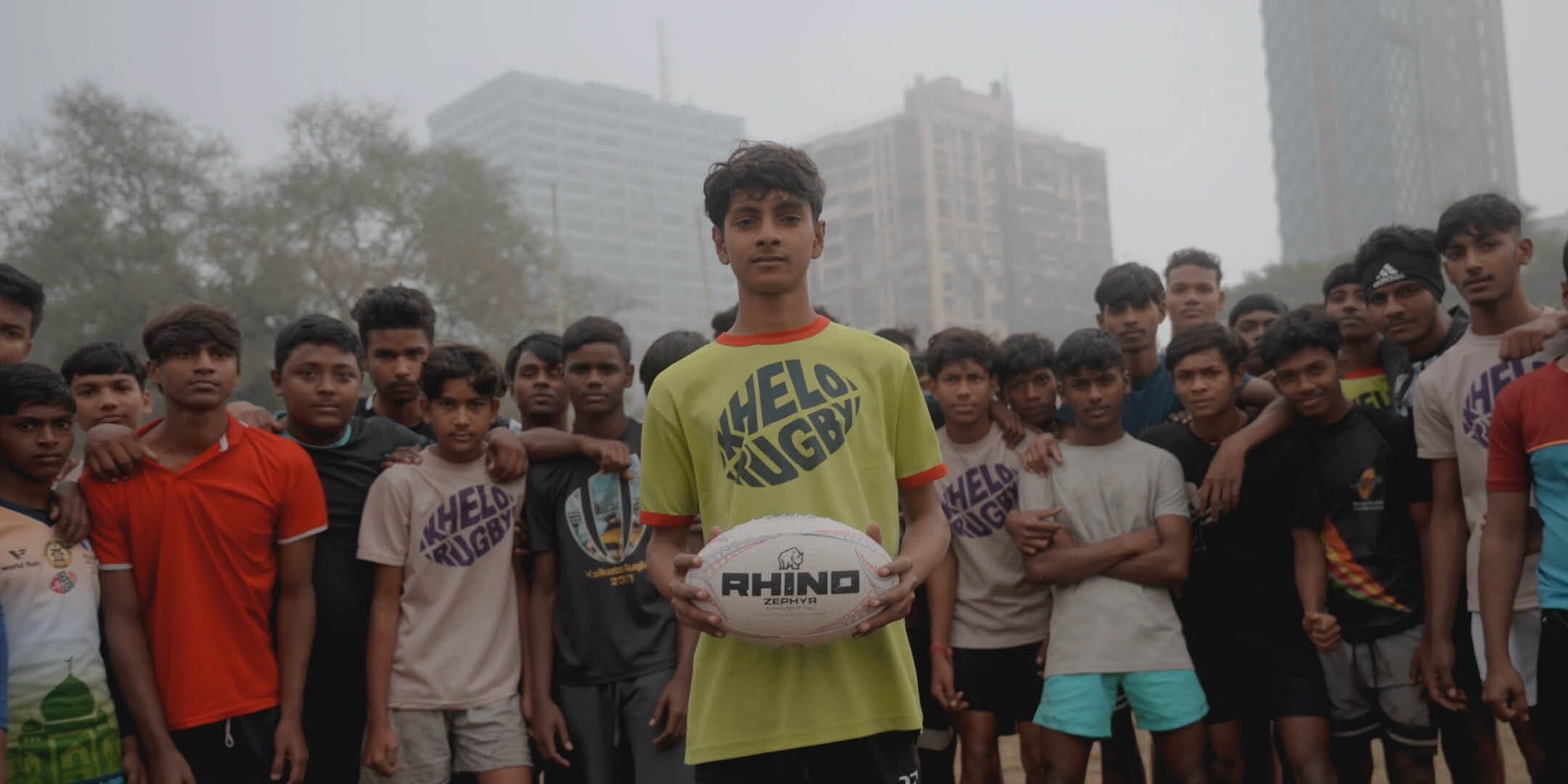Meet the Jungle Crows, the Indian stars of Rhino’s new A Ball for the Planet campaign, they might just be one of the most inspirational sides in world rugby.
Based in the heart of Kolkata, Khelo Rugby – or the Jungle Crows as many know the side – is a project launched almost 20 years ago aimed at helping the city’s street kids find a way to a better life. Today, they coach over 1,000 children across 36 of the city’s slums, as well as running projects in rural areas that also attract thousands.
About a decade ago, it was estimated around 113,000 children lived in railways stations across India. Among their number at one stage was one of the coaches of Khelo Rugby, Sukumar Handro. “I only knew the railway station, I don’t even know how I got here,” says Sukumar. “I can’t remember my parents, I just know that when they left me at the station, I was with friends.

“We stole food, money, and we’d try to sleep anywhere at the railway station, maybe in a train if we could, hiding under a seat. We weren’t allowed to stay there, so the cops would come and find us, beat us and tell us to get out. The hardest thing was when we couldn’t find any food, we were always hungry.”
Aged seven, Sukumar was moved into a hostel by a charity, and it was from here, a year later, that he first found his way to the Jungle Crows. “When I was first in the hostel, we weren’t allowed to go out,” he says. “They told us, ‘if you want to go out, then you have to play rugby!’ We’d go to the rugby and they’d give us food too, which was amazing, we loved it.”
Today, Sukumar, as well as being an international, is also captain of his state, West Bengal, and a key player for Khelo Rugby’s senior men’s side, Future Hope Harlequins, who are widely considered the second-best side in the country behind the Delhi Hurricanes.
Crow Field, their home ground, is set on the 400-acre Maidan park and is where Rhino – who have supported the organisation for over a decade – shot A Ball for the Planet.
Roughly 1.5 million people live in the slums of Kolkata, around a third of its inner-city population. “Most of the kids we coach are actually coming from different slums in Kolkata,” explains Pratap Kondu, who leads the coaching programme for Khelo Rugby. “We go and drop a rugby ball in the slums and try to attract all these kids to come and play, because most of the time, these kids don’t have anything to do.
“They say it’s like a dinosaur egg,” he laughs. “But once they get attracted to this ball, they keep coming back, we get them to go to school, because that's the most important part of our project – we try to make sure all of our kids are getting education.
“For these kids, life in the slum is very difficult,” he explains. “So early in the morning mum and dad leave the house, because they are all labourers in different areas, everybody has to work, which means these kids don't have anybody to guide them.”
Pratap is the perfect example of what can be achieved by the project. “I started playing rugby when I was a kid like them, with Khelo Rugby,” he explains. “I actually got kicked out of my house, because my mum got married to someone else when my father passed away.
“I can understand them well because I actually come from the same background. That can be very useful for them, understanding their problems, and you know, finding some solutions so they can do well in their life.
“That’s what do we,” he says. “Guide them in their life: play with them, take care of them, make sure that they're going to school and, once they are in high school, we make sure that they go for a degree-level college.”
Rhino Zephyr
The other star of A Ball for the Planet
A ball made from 80% recycled rubber, available in sizes 3-5, and a true innovation in the world of rugby. Shop here

